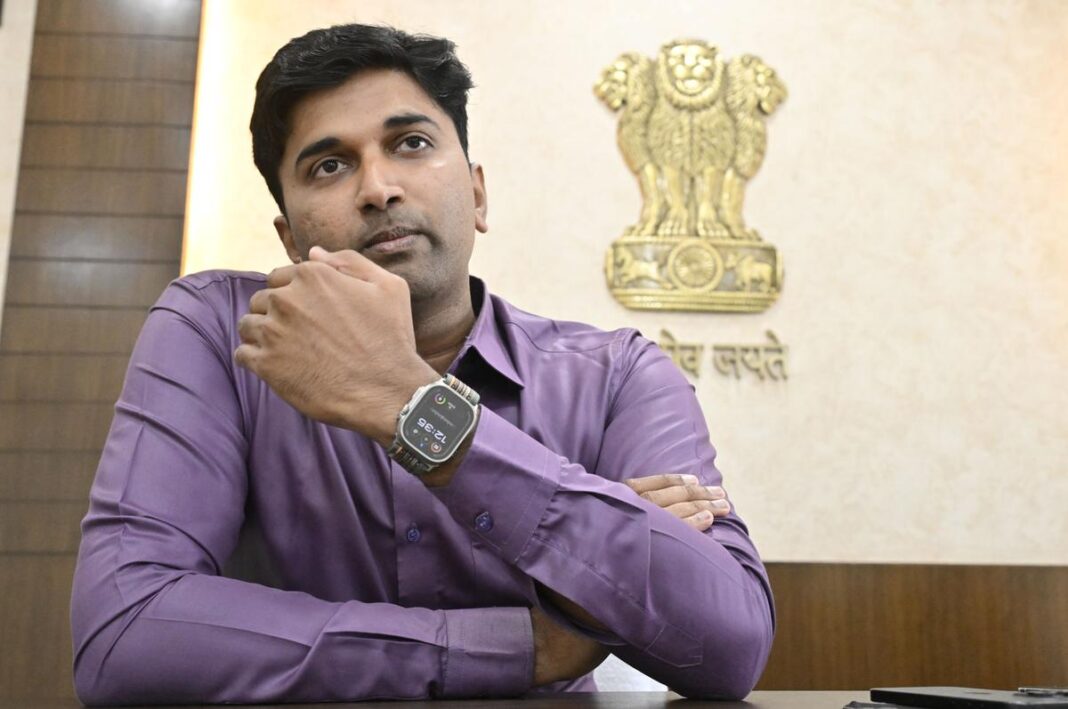Vijayawada Municipal Corporation (VMC) Commissioner HM Dhyanachandra has expressed gratitude to everyone who supported the flood relief efforts, acknowledging their contributions in helping Vijayawada city recover swiftly. He said the VMC has demonstrated remarkable resilience and efficiency in addressing the recent flood crisis affecting the region. The VMC has successfully implemented comprehensive measures to mitigate the impact of the floods and expedite recovery efforts, he added.
In a statement issued here on Thursday, the Commissioner said the VMC employees worked tirelessly alongside the relief efforts, contributing their skills and dedication to the cause. “Their coordinated and timely response has played a pivotal role in managing the disaster efficiently, enabling a faster recovery for the affected communities,” he said. He thanked everyone who contributed in flood relief operations.
He said that on August 31, Vijayawada witnessed heavy rainfall which led to the Budameru flood. The increase in the water level was primarily due to the reverse flow of water from rural areas located downstream, and was caused by the obstruction of natural flow.
This obstruction is mainly due to the presence of weed plants, which blocked the smooth passage of water. Additionally, there was a substantial deposition of silt in Budameru which originates from the peripheral areas and accumulates in the rivulet, further exacerbating the obstruction and contributing to the increased flood levels, he said.
“With 60,000 cusecs of water from the Budameru Rivulet entering the city, numerous areas have been inundated due to the flooding of River Krishna. More than 50 per cent of the city was submerged in the flood,” he said.
Meanwhile, he said the VMC faced a major challenge as 60 per cent of the workers are from these areas and half of the city was in floods. As many as 32 out of the 64 wards were affected by the floods. Five drainage pumping stations, besides the KL Rao head water works which supplies drinking water to the entire city, were inundated and damaged, he said.
“The VMC staff worked around the clock, responding to complaints from the CMO call centres. The 24/7 service was a lifeline for many flood-affected citizens, offering quick solutions to their problems and the VMC addressed complaints received via social media, including drone footage shared by residents. This swift response helped prevent the spread of diseases and ensured effective relief operations,” he explained.
Dhyanachandra said that for those still residing in the flooded areas, essential supplies have been provided through significant logistical efforts. The VMC has deployed 50 tractors to deliver food, water, and other necessities. Drinking water has been supplied using 230 tankers, he said.
To manage water removal from affected areas, 352 oil engines were hired for draining water. As many as 462 vehicles operated for clearing garbage, desilting the choke points at different areas for a free water flow. This extensive deployment helped to pump out excess water and alleviate flooding in critical locations, he added.
Furthermore, he said over 8,973 people have been mobilised, with significant support from the State government. These individuals have been actively engaged in rescue, sanitation, and other relief operations, ensuring that the affected regions receive the necessary aid and attention. Around 110 fire engines were deployed for cleaning the streets and houses in the flood-affected areas, Dhyanachandra explained.
Comprehensive measuresin place for flood relief opsVMC Commissioner thanks everyone who contributed in flood relief operations




